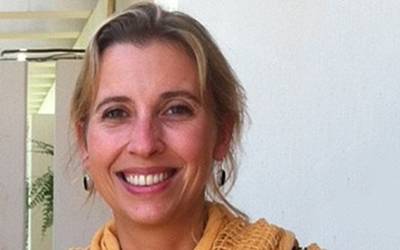Carolina Comandulli - Anthropology, Environment and Development MSc
28 November 2019

Studying anthropology at UCL opened many possibilities for my career development. The MSc programme provided training on how to tackle real world issues related to the topics we studied and taught me skills to raise funds to support my research and to apply for positions at institutions and organisations dealing with anthropology, environment and development issues. I really appreciate the programme’s approach that seeks to build links with theory and practice, by teaching the relevant academic debates while making students reflect on how they can employ this knowledge to address concrete situations. I am very grateful to be back to the Department to carry out my PhD studies and take advantage once more of the range of subjects and debates the Department offers and the environment of cooperation and collaboration to the researcher’s development that is provided through the Department’s research groups and seminars.
Carolina Comandulli is writing up her PhD in the Anthropology Department at University College London (UCL) about an Ashaninka indigenous community situated in the border between Brazil and Peru and their efforts to sustain their territory and culture through innovative strategies of action, aiming to contribute to current debates on sustainability, social change and indigenous action. She is also a member of the Extreme Citize Science Research Group (ExCiteS), of the Centre for the Anthropology of Sustainability (CAoS) and of Challenges of Multidisciplinarity in Socio-Environmental Research Group (CLOSER). In 2008, she obtained an MSc degree in Anthropology, Environment and Development from UCL, which resulted from an analysis of people-park conflicts in Brazil.
After finishing her MSc, she spent four years working for the National Foundation for Indigenous Affairs (FUNAI), which is the Brazilian governmental agency in charge of protecting and promoting indigenous peoples’ rights. There she occupied different positions, such as at the Indigenous Land Monitoring Department at the Sustainable Development Directorship. She also did consultancy work for indigenous land titling processes and environmental impact assessment on indigenous lands. During the time of her PhD fieldwork, she collaborated with the indigenous Ashaninka organisation ‘Apiwtxa’ helping to coordinate a project to restore degraded lands with agroforestry systems and to strengthen forest peoples’ organisations in the Upper Juruá River region.
 Close
Close

